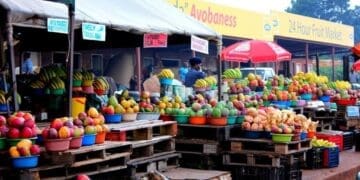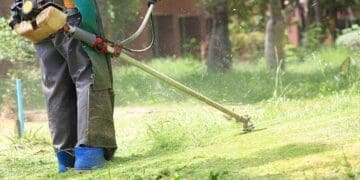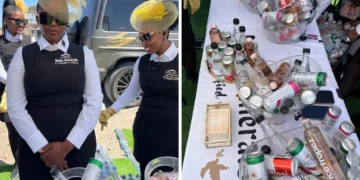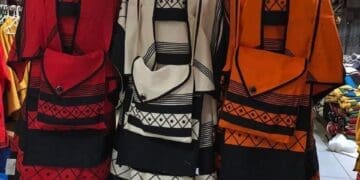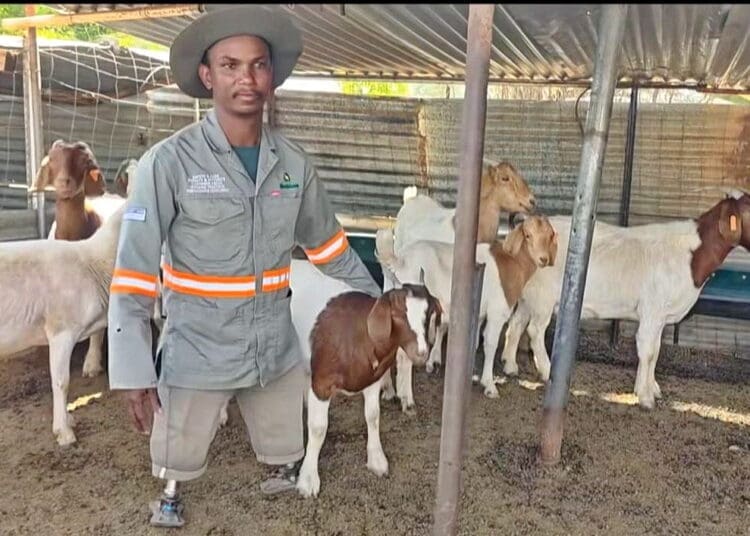At 37, Realebonga Mangwegape from dusty rural of Taung in North West province is proving that resilience and determination can outshine even the toughest challenges.
Despite losing both legs in an accident four years ago, he has built a small but growing goat farm from his backyard.
Now, he is at a crossroads—without funding, his dream of scaling into a commercial business may remain out of reach.
“I started farming when I was just 11 years old, helping elders in my community with livestock,” he told Vutivi Business.
Temo Leruo Botshelo (Pty)Ltd is the name of his farm, which translates to Crops, Livestock and Life.
“After my accident, it wasn’t easy, but I refused to give up. Farming gave me a purpose,” he said.
Using the little he saved from an internship stipend, Mangwegape bought his first goats. What began as a handful of animals in his yard has grown into a herd of 53 Boer goats and crossbreeds. But while the goats multiply, his challenges grow even faster.
Being a farmer with a disability demands more than most people can imagine.
Mangwegape relied heavily on his aunt and grandmother for feeding and medication while he was still recovering. He hired a shepherd to help with grazing. To pay him, he parts with nearly half of his disability grant.
“Sometimes I sacrifice buying some needs for myself just to make sure the goats eat and have medication,” he said.
Half of his SASSA grant is for paying the shepherd, while the remaining is divided amongst himself and his livestock. The sacrifices don’t always pay off. Trips to auctions often end in disappointment as hired logistics,veterinary and operational costs are also biting.
“After selling goats for R8,500, I sometimes walk away with just R500 because of transport, medication, and helpers’ fees,” he explained. Despite buyers lining up, profit margins remain razor-thin.
The interest is there.
Local butcheries and customers have asked for 20 to 40 goats at a time. But Mangwegape’s herd is far too small to meet the orders.
“It’s frustrating because the market is ready. I just can’t keep up as my farm is small produce. I’m pleading with funders and government to help me with land,” he said..
Mangwegape has applied for support from the National Youth Development Agency (NYDA) and the Department of Agriculture several times. He completed short courses, signed contracts, and submitted business plans. Yet while peers from the same training programmes received up to R150,000 in funding, his applications were not accepted.
“I did everything right, but the funding never came even though everyone I was with did receive it,” he said.
Mangwegape also stressed that organisations always encourage people with disability to apply, but still fail them.
“Government and organisations must make sure their promises reach people like us.”
His wish list is very practical.
Mangwegape said he needs 10–15 hectares of land to scale his farm into a commercial one. He also needs basic farming equipment like weigh scales, feeding troughs, and operational support for feed and veterinary care.
With those in place, he believes he could triple his herd and start breeding more Boer goats that fetch higher prices.
“Right now, I am farming in a corner,” Mangwegape said. “Give me land, and I will fill it.”
But Mangwegape’s dream stretches beyond his own herd.
He wants to open doors for others, particularly those with disabilities.
“Many people with disabilities give up. I want to show them that life doesn’t end after an accident. Farming gave me my dignity back after many sorrowful days being amputee, and I want to share that hope,” he said fiercely.
For now, he continues to push on, balancing hope with hardship.
“I believe one day I’ll be a commercial farmer,” he smiled. “I’ll break borders, even export my goats. All I need is funding and support.”
His aunt, Kgalalelo Mangwegape supports him on the farm during vaccination time. She sees first-hand how much of his disability grant goes back into the farm, leaving little for himself.
“He uses most of his grant on medication,” she told Vutivi Business. “It’s not sustainable and really needs funding and support, especially for medication.”
Mangwegape is clear about what he wants funders and government to hear.
“I am not asking for handouts. I am asking for help to grow as I just don’t sit but very hands-on. I want to contribute to food security, create jobs, and prove that disability does not mean inability.”
For now, he wakes each morning to feed his goats, believing that tomorrow might bring the breakthrough he needs.
“Disability took my legs, but not my ambition,” he said. “All I need is a chance. Help me.”
Azwi@vutivibusiness.co.za



